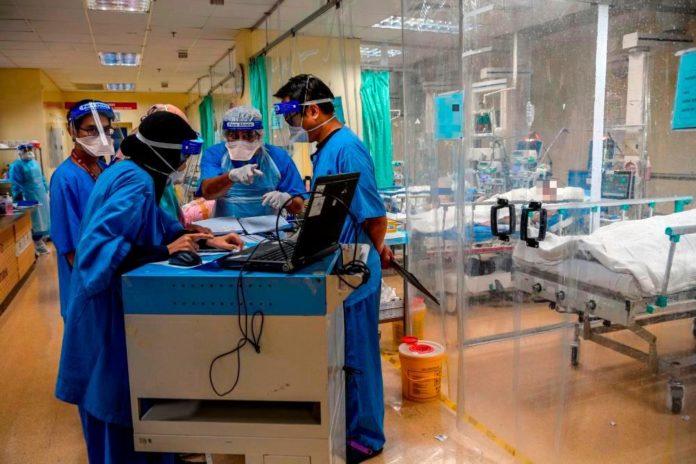In a concerning trend, Karachi has witnessed a significant increase in respiratory tract infections over the past few weeks. This surge in cases has prompted health authorities to issue an advisory on prevention and control of influenza, signaling the need for heightened awareness and precautionary measures. The city’s healthcare facilities are reporting a substantial influx of patients with flu-like symptoms, marking the second spike in cases in the last two months.
Understanding the Nature of the Infections
Senior ENT surgeon, Dr. Qaiser Sajjad, noted that this resurgence in cases is attributed to multiple viruses causing illness, primarily managed through symptomatic treatment. Although some patients exhibit superadded bacterial infections and require antibiotics, laboratory diagnosis remains limited due to the absence of a virology laboratory in the city. Most patients recover within three to four days with proper fever management, bed rest, and increased fluid intake. Nonetheless, there are instances of influenza and rinofaringitis (nasal mucosa inflammation) caused by various agents, often remaining undetected.

Senior general physician, Dr. Abdul Ghafoor Shoro, emphasized that influenza viruses are the primary culprits behind the current surge, and he believes the health department issued the advisory rather late. Patients with symptoms like high fever, cough, body pains, runny nose, headaches, and sore throat can be managed well with symptomatic treatment. However, inadequate patient management can lead to complications like pneumonia, involving one or both lungs.
Underlying Factors Contributing to the Surge
Experts attribute the rising number of respiratory infections to weakened immune systems caused by sedentary lifestyles, junk food consumption, late-night sleep patterns, growing air pollution, and unhygienic living conditions. Dr. Sajjad expressed concern over unhealthy habits like frequent dining out and late-night screen time, calling such a lifestyle “destructive.”

Moreover, Karachi’s unpredictable weather patterns contribute to the issue, as sudden temperature variations can trigger illness in individuals with weakened immune systems. Experts emphasize the need for local studies to gather evidence-based data for improved patient management and prevention strategies.
Prevention and Protection
In light of the increasing cases, the health department has advised vaccination against influenza as the most crucial preventive measure. Vaccination is recommended for high-risk groups, including health workers, pregnant women, children under 5 years, and those with chronic cardiopulmonary diseases, to reduce morbidity and mortality caused by influenza viruses.
For individuals experiencing flu-like symptoms, it is advised to stay home for at least 24 hours, limit contact with others, use face masks when coughing and sneezing, avoid traveling if infected, improve ventilation in enclosed spaces, and hospitalize infected patients in isolation.
A Call to Action
As Karachi grapples with this surge in respiratory infections, it is crucial for individuals to take proactive steps to protect their health and reduce the risk of illness. Adhering to the advisory’s guidelines, along with promoting a healthy lifestyle, is paramount in combating these infections and safeguarding the well-being of the community.
Stay tuned to Brandsynario for more











































